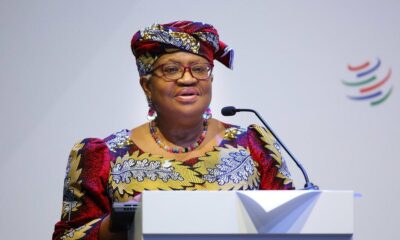Features
Ngozi Okonjo-Iweala’s Response to Report Calling Her “Grandmother” is a Call for Us to Speak up Against Sexism

In February, after South Korea’s Yoo Myung-hee stated her decision to retreat from the race to become the Director-General of the World Trade Organisation (WTO), it became clear that Ngozi Okonjo-Iweala was going to make history as the first African and the first woman to rise to the position of a World Trade Organisation Director-General.
Of course, her (then would-be) appointment sparked a lot of reactions from people all over the world: Nigerians rejoiced that one of their own is making the country proud internationally; women rejoiced that finally, young girls can dream and aspire to reach the peak of their career, and black people rejoiced at the hope for more diversity and inclusivity in the workforce.
While we may have expected a few opinions against Ngozi Okonjo-Iweala’s appointment to become DG of WTO, many were not prepared for the level of sexist (and arguably, racist) comments made about her, particularly from the media.
In reporting the news, Reuters’ – a UK-based news and media publication – headline (which has since been corrected) read “no-nonsense Nigerian woman set to be named boss in double first for WTO.”
This headline garnered a lot of backlashes, particularly from Nigerians who asked why her name couldn’t be mentioned and if “no-nonsense” would have been used in the headline should a man had become DG.
Also, while reporting the news of her appointment, at least three Swiss newspapers — Luzerner Zeitung, Aargauer Zeitung and St. Galler Tagblatt, described Ngozi Okonjo-Iweala as a ‘grandmother’. Aargauer Zeitung wrote in their headline, “This 66-year-old Nigerian grandmother will become the boss of the WTO.”
Angered by this headline, 124 ambassadors and heads of international organizations in Geneva sent a letter to the editors of the newspapers.
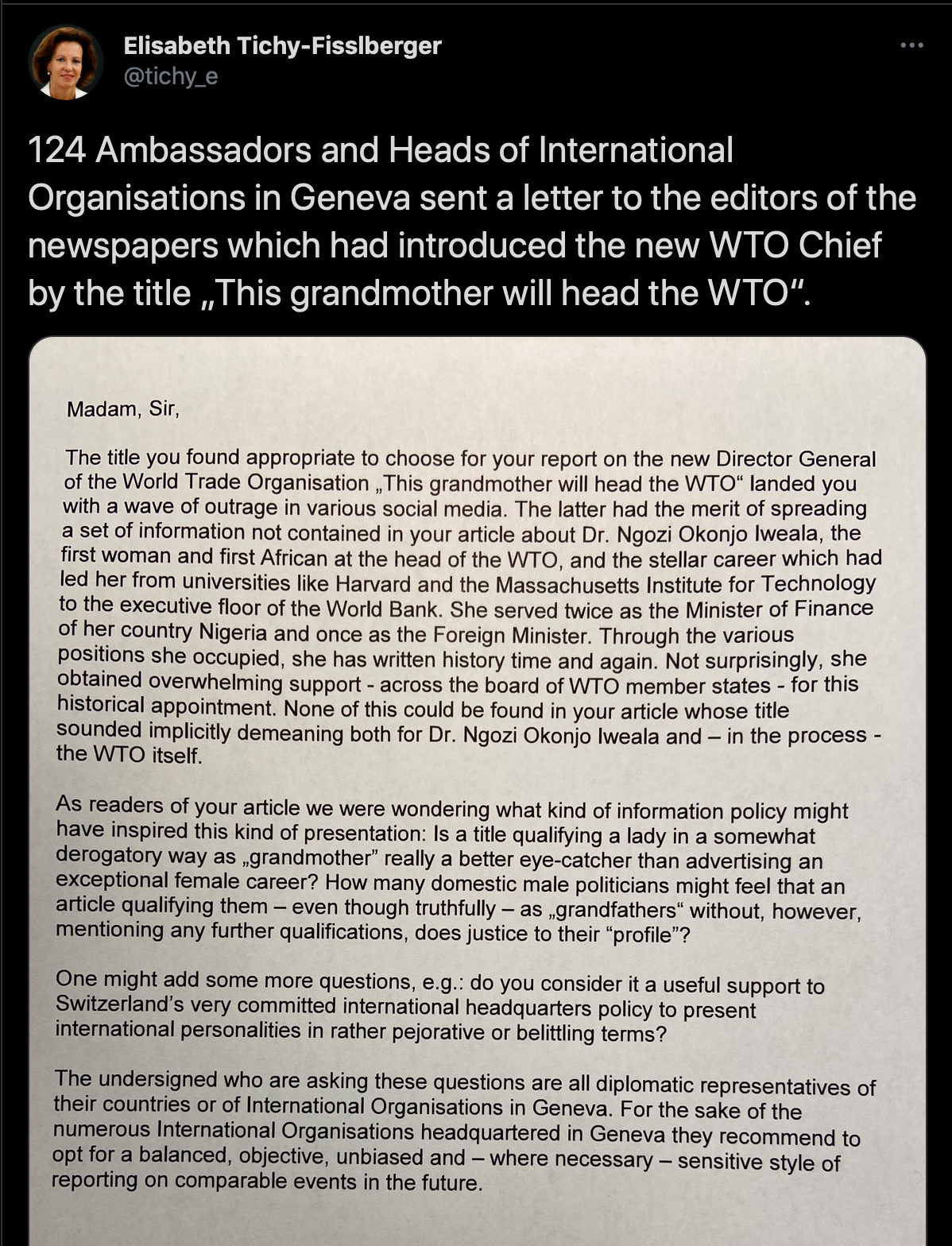
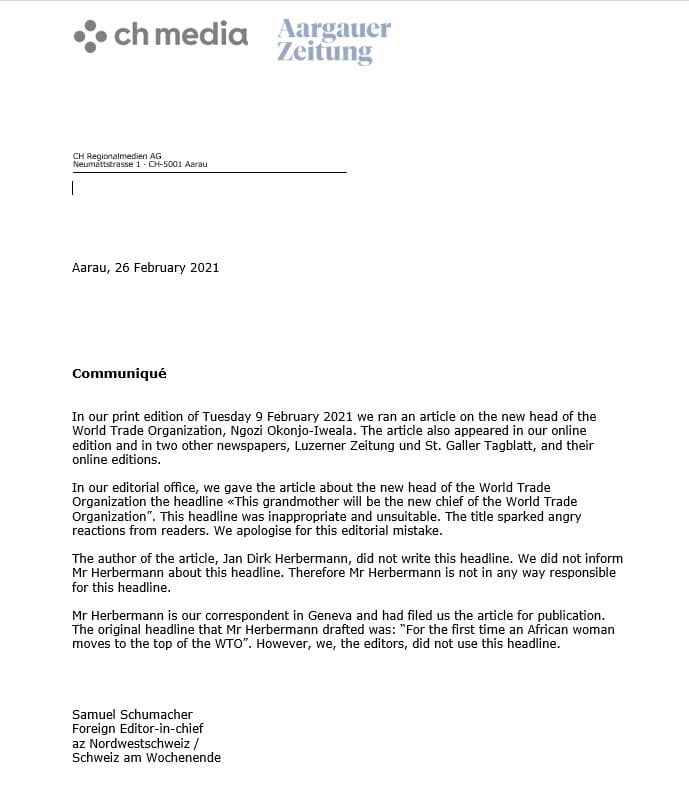
In her response to the apology, Ngozi Okonjo-Iweala said she’s “thankful to all my sisters, UN Women Leaders, and the 124 Ambassadors in Geneva who signed the petition on calling out the racist & sexist remarks in this newspaper.” She also said that “We need to call out this behavior when it happens.”
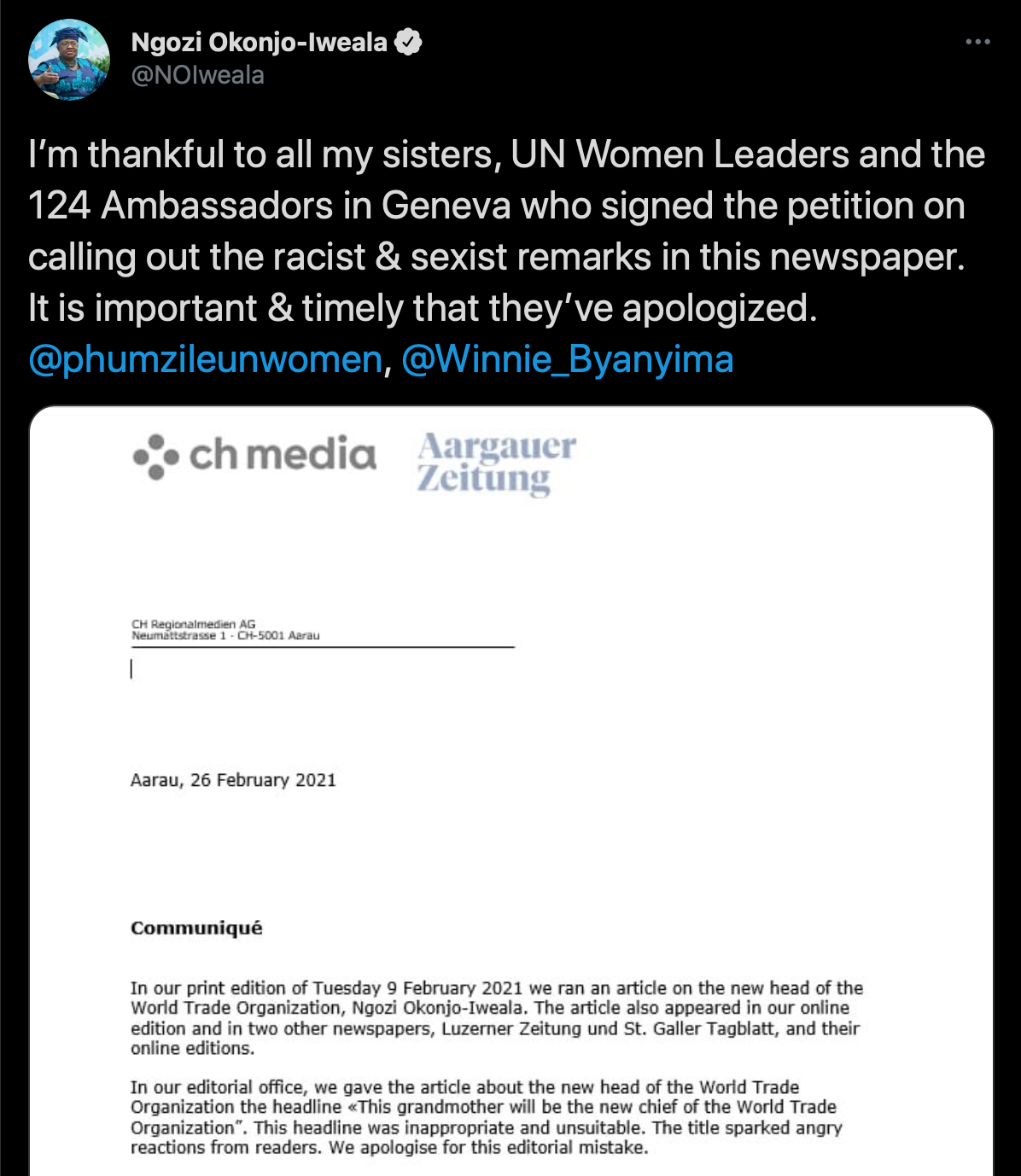
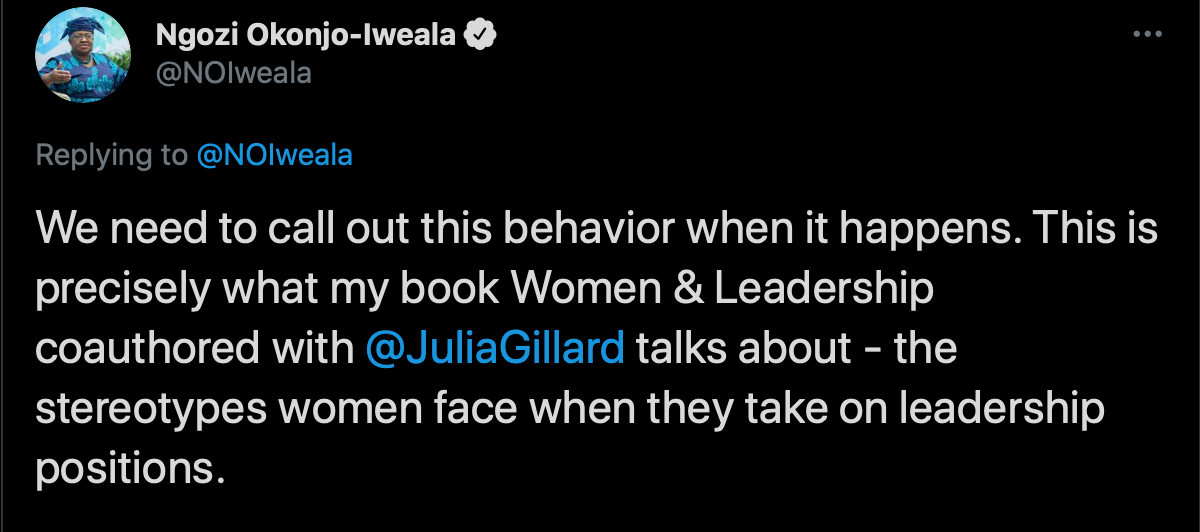
What’s the big deal about these headlines?
In a UN study released in March 2020, research carried out in 75 countries representing 80 percent of the world’s population found out that nearly 90 percent of the world’s population – of every gender – holds some prejudice against women.
According to the United Nations, the prejudiced views include: that men are better politicians and business leaders than women; that going to university is more important for men than women; and that men should get preferential treatment in competitive job markets. The percentage of those holding at least one sexist bias was largest in Pakistan – where 99.81 percent of people held similar prejudices – followed by Qatar and Nigeria, both at 99.73 percent.
For long, many people held on to the belief that women are meant to be seen and not heard and that women holding top positions in society would be catastrophic. While we may have long moved past those harmful beliefs, these headlines are fragments of archaic patriarchal systems aimed to ‘put women in their places’ by describing them with maternal qualities rather than their professional achievements.
That is why even with all the educational qualifications Okonjo-Iweala has acquired, all the causes she has championed, and her professional background as a World Bank insider where she spent 25 years rising to the number two position, she was still described as a ‘grandmother’. The idea, however subtle and nonchalant it may seem, is to underplay her substantial career and academic achievements and cast doubt on how fit she is to hold such high position. There’s a very high chance that if a 66-year-old man had become the DG of WTO, the headlines would have been different.
Headlines like this are passive-aggressive; they continually put women on the defensive, casting doubt on their credibility, and then watch as women struggle to explain why they deserve to take on leadership positions. Also, no one can deny the damage an ‘editorial mistake’ like that causes.
The letters of 124 ambassadors and heads of international organizations to the Swiss newspapers may be commendable and timely, still, it is a shame that they had to highlight Okonjo-Iweala’s rich portfolio – which, by the way, is common knowledge – before an apology was tendered. Women shouldn’t have to explain why they deserve to be at the top.
Just as Ngozi Okonjo-Iweala said, we need to call out this behaviour when it happens. No matter how little it is or how funny it sounds, call out sexism when you spot one. A 2015 survey shows that 81% of women have been victims of sexist jokes at work. From as little as people expecting the woman to serve the tea at the office to jokes of how women belong to za oza room, to women being paid lesser than men for the same qualifications and job roles in many companies, we all need to speak up against sexism in the workplace.
There is no way we can encourage more women to push further in their careers if we constantly keep throwing rocks their way, and yes! Seemingly harmless headlines are rocks. If we must have a progressive society, we must embrace the fact that when it comes to occupying leadership positions, women are not chickening out. And that’s on that.


